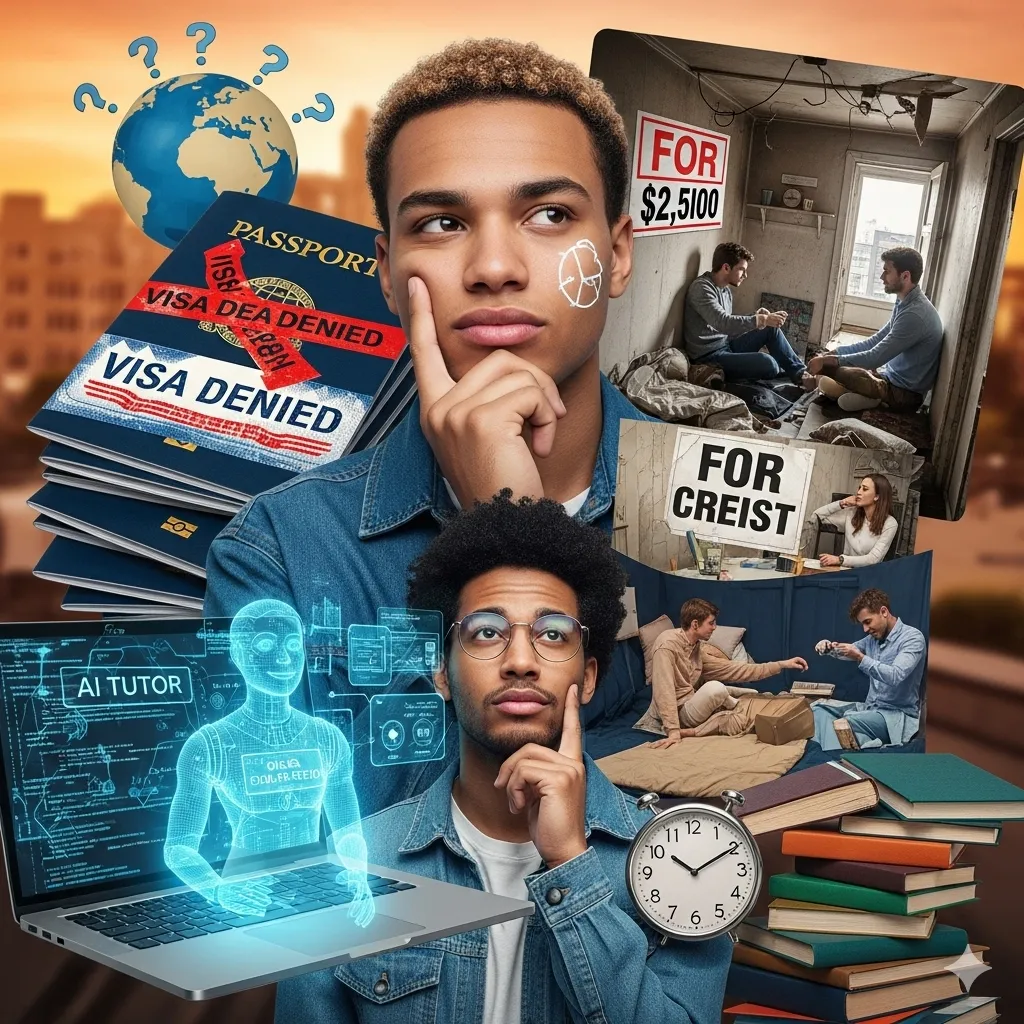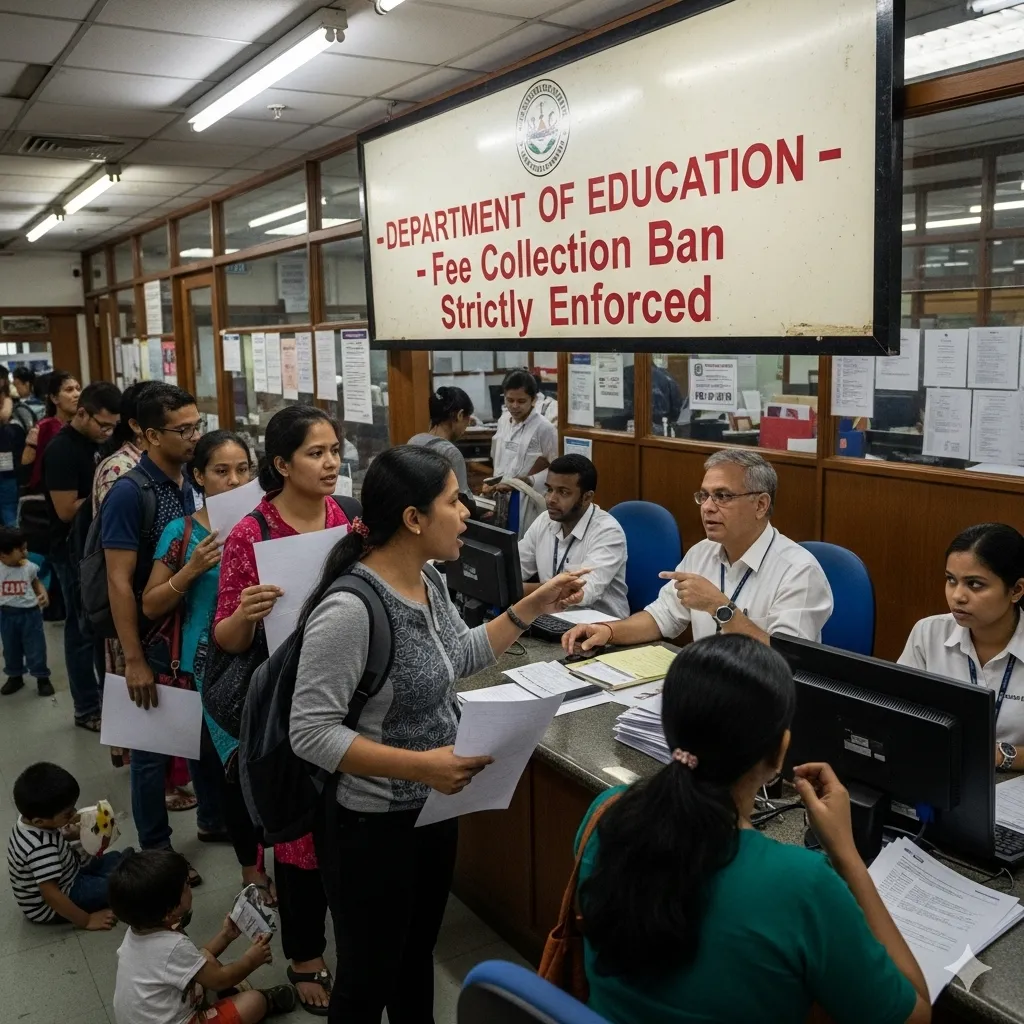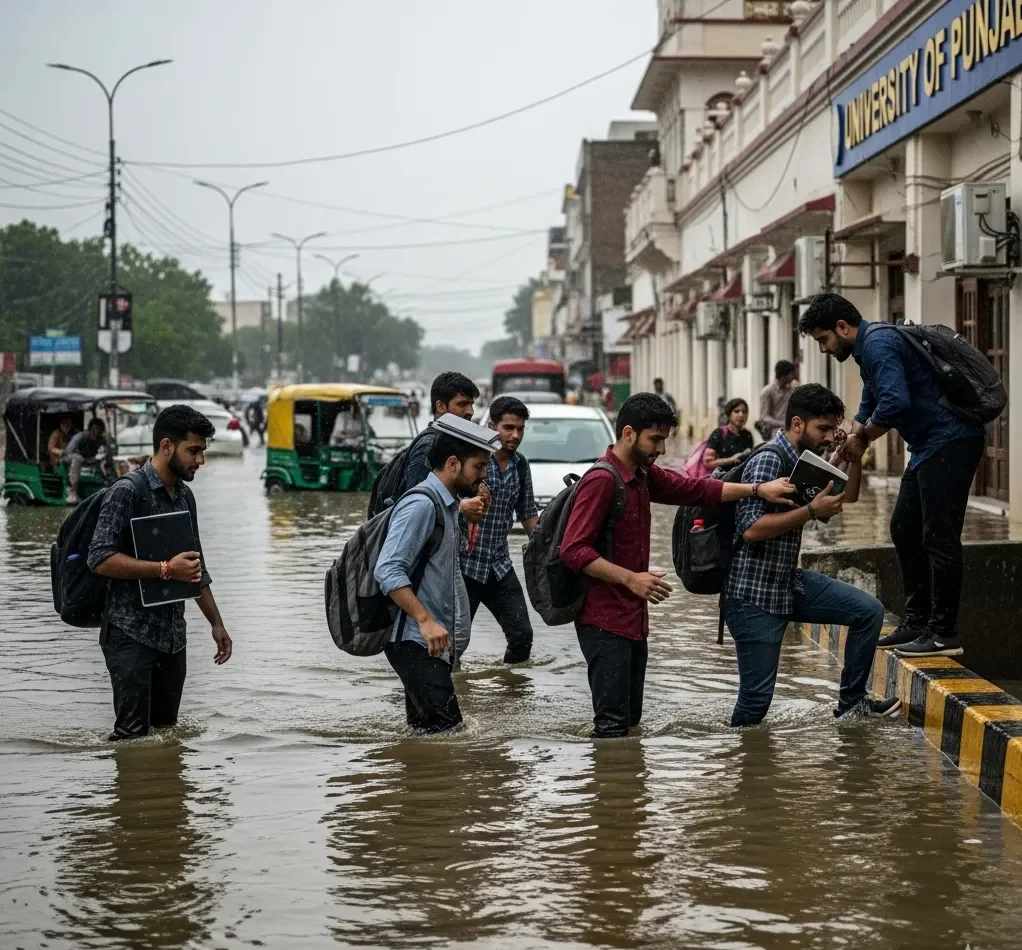Introduction: Understanding Global Student Challenges
Higher education is undergoing global trends and challenges for students that are altering how our learners move through, study, and succeed in their places of study across the world. Whether it’s Australia’s international student visa limits, or Canada dealing with an ongoing student housing crisis, the complexities of studying abroad are being intensified. AI tutors in higher education have created excitement and trepidation, while the global learning crisis highlights the immediate need to advance access and equity. International students exist on the boundaries of all of these trends affecting the affordability, accessibility, and quality of their educational experiences.
Visa Restrictions in Australia and Housing Shortages in Canada
Today one of the major global student issues is the more restrictive limitation on international student visa limits in Australia. Policymakers point to intentions for limitations based on managing migration. Students and universities fear this reduction could limit opportunities for cultural exchange, and diminish the talent pipeline which our economy requires for growth.
Meanwhile, Canada’s continued student housing affordability crisis has persisted. Given the rising rates in places like Toronto or Vancouver, international students are struggling to find safe affordable housing, in what was already a difficult situation to begin with. The most recent reports indicate student housing demand has far exceeded supply. As a result, some learners are now being forced to settle for overcrowded, temporary, or uncertain living arrangements. These living conditions constitute a further strain on financial resources, academic success and mental health health and the ability to care for themselves.
AI Tutors in Higher Education: Opportunity or Risk?
The rise of AI tutors in higher education represents one more new theme within the global student challenges ecosystem. AI-based tools offer a guarantee of personalized learning pathways, adaptive feedback loops, and scalable support. Yet, educators want explicit guardrails around transparency, equity, and responsibility. Concerns include data privacy, bias in algorithms and the right substituting (and not augmenting) of human educators.

Even so, responsible implementation of AI tutors could begin to alleviate resource shortages, especially in persistent faculty shortage areas. AI tutors could help students understand STEM concepts that are difficult to grasp, assist multilingual students, and improve accessibility. The challenge will be walking the line between being innovative and being ethically responsible.
The Global Learning Crisis: A Call for Collective Action
The global learning crisis, in addition to visas, housing, and technology, is perhaps one of the greatest global challenges for students. Millions of students are currently not able to achieve even basic literacy and counting skills according to UNESCO. The pandemic has intensified the crisis, but the crisis was present before the pandemic. The crisis impact is deeper in low-income places where there is also a lack of digital tools, competent teachers, and a safe studying environment.
In order to overcome the challenges presented by the crisis, governments, universities, and international organizations must invest in inclusive education policies, digital infrastructure, and transnational cooperation. They facilitates scholarships, investing in cheap options for student housing, and establishing strong ethical standards for AI and other education technology. Humanizing education, putting education accessibility and equity at the forefront, globally, will give the world opportunities to overcome its own challenges to the next generation.



